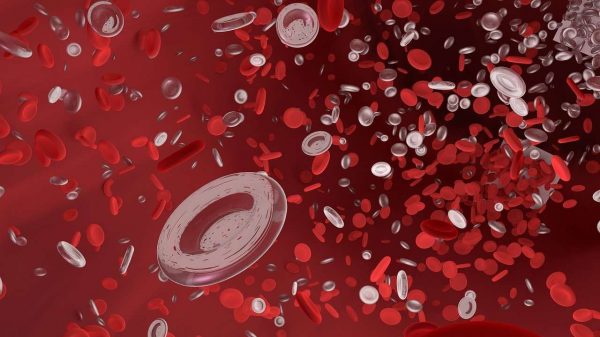How much do you know about liver cirrhosis? If you or a loved one has a liver disease it’s important to know facts about cirrhosis like the symptoms, causes, diagnosis, and treatment. That, in turn, can help many people, including those with early-stage liver disease or patients already diagnosed with severe liver scarring that defines cirrhosis.
Liver disease is a serious condition and especially cirrhosis since it’s Stage 4. This is why it’s very important to have all the info you need whether you have fatty liver disease (FLD) or another stage of the condition. This can help prevent you from developing cirrhosis. Meanwhile, if you already have this condition you’ll want to know the information on the best treatments like diet, lifestyle changes to consider, and the outlook.
Facts About Cirrhosis
Liver cirrhosis is Stage 4 of liver disease. It involves scar tissue replacing healthy tissue in the vital organ. This provides several problems.
Here are some examples. When the liver isn’t working properly due to this condition the blood flow into the liver gets blocked. This slows down how fast the liver can process lots of stuff. This includes:
- Vitamins
- Minerals
- Hormones
- Toxins (natural)
- Drugs
The liver is the human body’s biggest solid organ and only the skin is a larger organ. The liver has several functions including:
- Store extra nutrients
- Break down saturated fat
- Make bile for digesting food
- Get rid of dangerous substances like drugs/alcohol
- Return some nutrients to the bloodstream
- Store blood sugar
- Makes blood proteins for moving oxygen, blood clots, and immune system
- Produce cholesterol
This shows the great importance of the liver along with other vital organs. Liver disease includes 4 different stages. It starts with fatty liver disease (FLD) in which the liver has more fat than normal.
FLD is quite common. For example, up to 100% of heavy drinkers have this condition. Also, up to 40% of all Americans have non-alcoholic fatty liver disease (NAFLD). The key is to take steps to prevent this condition from progressing to later stages.
Even cirrhosis has different stages. So it’s critical to take steps to prevent the condition from progressing to late-stage cirrhosis. This involves preserving as much liver function as possible to help prevent liver failure.
Facts About Cirrhosis: Symptoms and Causes
There are various possible symptoms you might experience as signs you have cirrhosis. Take note that you might not have all of them. However, if you experience multiple signs/symptoms you should get it checked out. This is especially true if you’ve been diagnosed with liver disease.
Here are some of the common symptoms you should watch for:
- Weakness
- Fatigue
- Itching
- Weakness
- Easy bruising/bleeding
- Jaundice (yellow eyeballs/skin)
One issue related to the types of symptoms you experience is the stage of cirrhosis itself that you experience. For example, keep in mind that cirrhosis is already Stage 4 of liver disease. However, you can be in the early or late stages of Stage 4 itself.
One important symptom to watch out for is liver scarring. If you experience this it doesn’t mean you can’t recover. However, it’s important to slow down, reverse, or prevent this situation whenever possible. The more scarring that takes place the less functionality the liver will have.
Some complications can involve liver disease. They include ones like edema (a skin condition), ascites (fluid buildup in the abdomen), and bacterial infections. All of these complications can affect your condition and make it tougher to manage the liver condition.
In terms of causes, many people have the notion that heavy alcohol drinking usually causes cirrhosis. It’s a major cause of the condition but not the only one. For example, 15% of heavy drinkers develop liver scarring. That’s a somewhat high figure but means there are various other causes of the condition.
There are various other causes. They include long-term viral infections like hepatitis B/C, diabetes, and obesity.
Other factors that cause physical damage to the liver can cause cirrhosis. They include physical injury caused by factors like immune system diseases that cause the body to attack healthy cells. Blocked bile ducts and liver cancer can also result in this condition.
Treatment and Prevention
The treatment for liver cirrhosis is based on a particular cause. For example, different factors cause liver scarring. They include:
- Viral infections
- Skin conditions
- Bacterial infections
- Hepatic encephalopathy (brain malfunction)
- Hyper-active spleen
- Fluid buildup in the abdomen
Various complications can make it tougher to treat cirrhosis effectively. This helps to explain why it’s important to prevent Stage 4 of liver disease from progressing to late-stage cirrhosis. The more symptoms the patient experiences the tougher it is to deal with them.
Your doctor can help to determine which complications you have. This is from check-ups and tests that he/she orders. Sometimes symptoms are related to non-cirrhosis conditions.
The particular cirrhosis treatment that’s used is based on various factors. They include the main cause and amount of liver damage. The goal is always to slow down how fast scar tissue replaces liver tissue.
Alcohol dependency is one of the main causes of cirrhosis. If you have this problem then it’s critical to reduce alcohol consumption and cold turkey if possible.
Hepatitis sufferers can take certain medications to deal with viral infections. Various treatments are available for Hepatitis A, B, or C.
If you’re overweight or obese it’s important to take steps to lose weight. That can be through diet, exercise, or both. You could pick whatever diet program works best for you like Keto or Paleo.
Sometimes other complications require treatments including extra body fluid, infections, cancer risk, and high blood pressure. Various OTC/prescription treatments are available.
Here are steps to help prevent liver cirrhosis:
- Avoid high-risk sexual activity
- Get regular checkups
- Exercise regularly
- Eat a healthy/well-balanced diet
- Reduce stress levels
- Be careful near synthetic chemicals
- Get hepatitis vaccinations
- Avoid heavy alcohol drinking
Like other conditions, taking some basic steps can help to lower your risk of liver cirrhosis and prevent the need to learn about cirrhosis.























